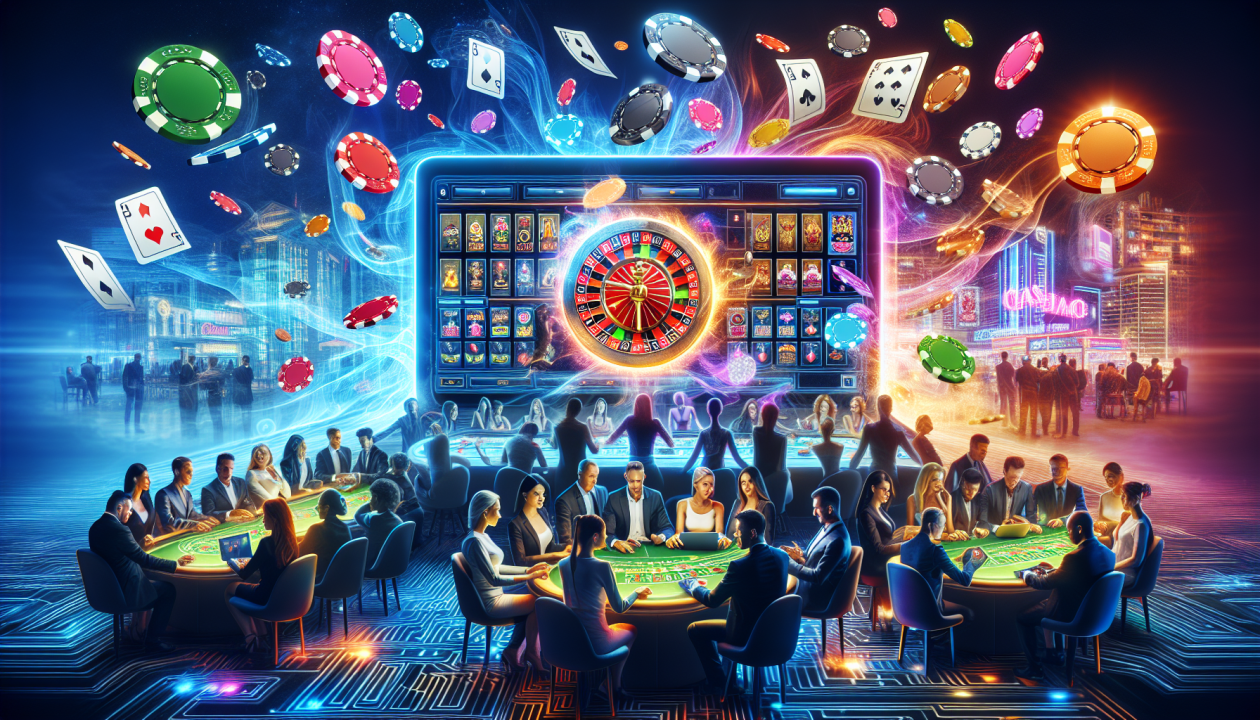
The Evolution and Impact of Online Casinos: A Modern Gambling Revolution
In the sprawling landscape of digital innovation, online casinos stand out as a testament to how technology can reshape traditional industries. What started as a niche offering has burgeoned into a global phenomenon, transforming the gambling experience for millions of users alexistogel. This article delves into the evolution, impact, and future prospects of online casinos, shedding light on how they have redefined gaming and wagering in the 21st century.
The Birth of Online Casinos
The genesis of online casinos can be traced back to the mid-1990s, a time when the internet was beginning to weave its intricate web into the fabric of daily life. The launch of the first online casino, InterCasino, in 1996, marked the beginning of a new era in gambling. Utilizing rudimentary software, it offered a limited selection of games and set the stage for what would become a thriving industry.
The early days of online casinos were characterized by slow internet connections, basic graphics, and a narrow range of games. However, the promise of playing casino games from the comfort of one’s home drew in a growing number of enthusiasts. This period laid the groundwork for a revolution that would soon see technological advancements transforming the entire landscape of online gambling.
The Technological Boom
The turn of the millennium witnessed a significant leap in technological advancements, which profoundly impacted online casinos. The advent of high-speed internet, advanced graphics processing, and sophisticated software platforms enabled a more immersive and engaging gaming experience. Key developments during this era included:
- Flash and Java Games: These technologies allowed for the creation of interactive and visually appealing games that could be played directly in web browsers without requiring downloads.
- Mobile Gaming: With the rise of smartphones and tablets, online casinos quickly adapted to mobile platforms, making it possible for players to access their favorite games on the go.
- Live Dealer Games: To bridge the gap between physical and online casinos, live dealer games were introduced. These games use real-time video streaming to connect players with live dealers, enhancing the authenticity and excitement of the gaming experience.
Regulatory Framework and Security
As the online casino industry expanded, the need for robust regulatory frameworks and security measures became increasingly apparent. Governments and regulatory bodies worldwide began to implement legislation to ensure fair play, protect consumers, and prevent illicit activities. This led to the establishment of licensing authorities such as the Malta Gaming Authority and the UK Gambling Commission, which oversee and regulate online casinos to maintain industry standards.
Security has also been a paramount concern. Online casinos have invested heavily in advanced encryption technologies, such as SSL (Secure Socket Layer), to protect players’ personal and financial information. Additionally, the implementation of RNG (Random Number Generators) ensures that game outcomes remain fair and unbiased, maintaining the integrity of the gambling experience.
The Social and Cultural Impact
The proliferation of online casinos has had a significant social and cultural impact. On one hand, they have democratized access to gambling, allowing individuals from various socio-economic backgrounds to participate in gaming activities. On the other hand, they have raised concerns about gambling addiction and its potential consequences.
The industry has responded by promoting responsible gambling practices and offering resources to help individuals manage their gambling behavior. Features such as deposit limits, self-exclusion options, and access to support organizations have been integrated into online platforms to address these concerns.